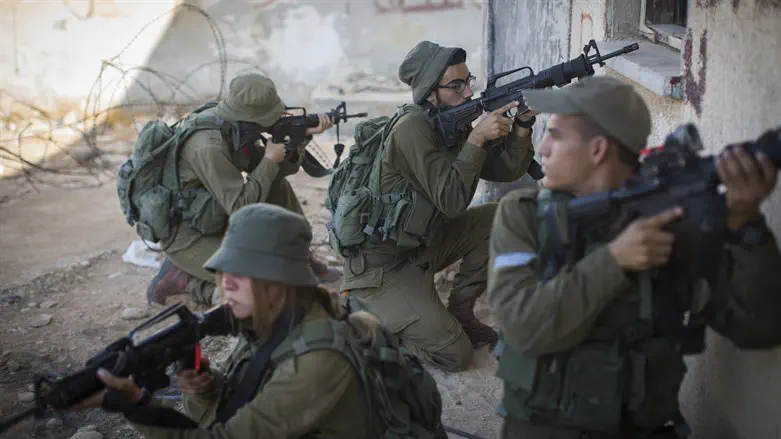
An internal survey conducted by the IDF Behavioral Sciences Center indicates a decrease in the motivation of Israeli youth to enlist in combat positions compared to previous years, Israel Hayom reported.
The data from the survey was released as part of a freedom of information request.
The survey was conducted among approximately 40% of military personnel and found that the motivation to serve in combat units in 2022 was the lowest on record. In December 2022, only 66% of the men questioned in the survey indicated that they were interested in serving in combat roles, compared to 73% in 2020. This is before the controversy surrounding the government's planned judicial reforms and the subsequent refusals of reservists to serve began.
Among women, the decrease is even more significant: in 2022, only 48% of female recruits expressed a desire to serve in combat units, compared to 50% in 2021, 53% in 2020, and 60% in 2018. Given the trends, it is assumed that the results for 2023 will show a further decline.
Initially, the IDF refused to transfer the data on motivation to the Freedom of Information Movement, and therefore the movement began legal proceedings under the Freedom of Information Law. After many months, the IDF transferred the data.
Until a few years ago, the IDF published during each recruitment cycle the data from the motivation surveys for combat service conducted among 11th graders. At a certain point, the IDF stopped publishing the data on the grounds that the results do not reflect the motivation of the youth to enlist in the army, because the surveys are conducted before the IDF's recruitment initiatives take place.
The IDF claims that the motivation among youth for enlistment is made up of various factors, and cannot be presented by just one numerical figure. This is because there may be cases in which a person has a high motivation for service in the Golani Brigade, and a low motivation for combat service in the tank corps.
An IDF spokesperson stated: "The survey was carried out for internal IDF purposes, and has no influence whatsoever on the decision-making in forward planning related to the IDF's manpower. The responding population makes up about 40% of the combat recruits from the total population, and they complete the questionnaire at the stage after the first stage and before the military questionnaire is filled out. The survey does not reflect the official IDF data regarding the recruitment motivation of all the recruits."
